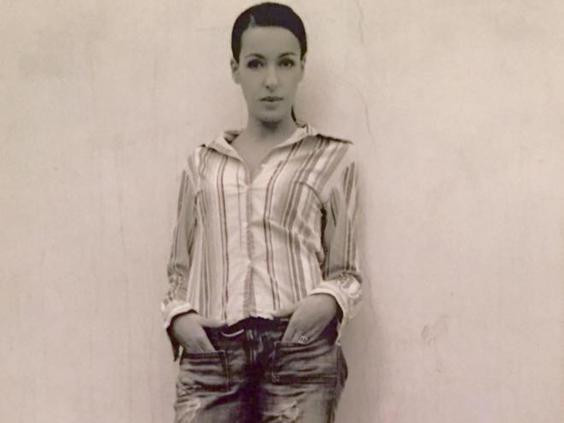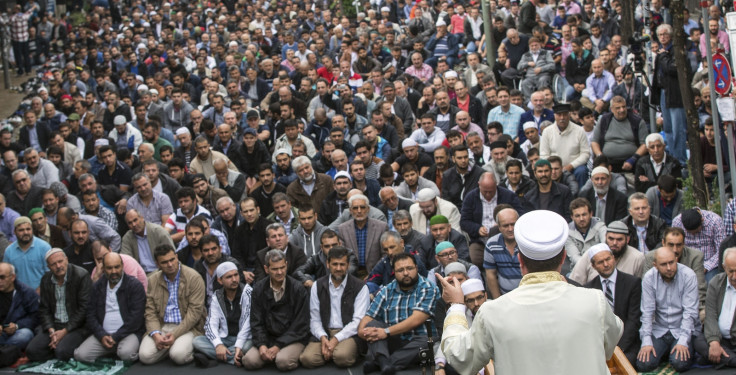Paris attacks: Muslim victims of terror assault named

At least five of the victims of the Paris terror attacks, that left 129 people dead, were Muslims, it has been confirmed. One of them was the mother of an eight-month-old baby. Another was shot dead as she celebrated her birthday with her family.
Houda Saadi, who was of Tunisian descent, was at the La Belle Equipe café with her sister Halima, and her brothers, Khaled and Abdallah to mark her 35th birthday on Friday (13 November) night.
Tous les Tunisiens sont les deux sœurs Halima et Houda Saadi, tuées par balles à Paris le 13/11/15. pic.twitter.com/uQYTCKSWHy
— soleil444 (@soleil444) November 14, 2015At around 9.30pm a gunman opened fire on the diners, indiscriminately spraying the café with a barrage of bullets. Houda was killed instantly in the attack, while Halimaa died from her injuries later. Their brother Khaled whowas working at the café, revealed he dived to the ground to avoid gunfire - only to get up and find his family dead. He and his brother began giving CPR in an attempt to save their sisters' lives. Halima, who had been shot in the head, died later in hospital. Both brothers survived.
Another victim at the popular café was 41-year-old receptionist Djamila Houd. Her sister Tassadit told l'Echo Republicain, her freedom and personality made her "a symbol these fanatics want to destroy." She is survived by an eight-month-old daughter.
Repose en paix mon ami Didine
Having a face, to put to a name.
#KheireddineSahbi
#Algeria
#ParisAttacks pic.twitter.com/8U5EagHPve
— Elyes Antri (@ElyesAntri) November 17, 2015Kherieddine Sahbi, an Algerian who had come to Paris to study ethnomusicology, was killed as he walked home. A talented violinist, he was a student at Paris' prestigious Sorbonne university.
Asta Diakité was another Muslim who was killed over the course of the violence assaults on Friday night. She was the cousin of Lassana Diarra - a professional footballer for the French national team, who was playing in the France-Germany match that was interrupted by the bombing near the Stade de France.
Writing on Facebook, Diarra said of his cousin: "She was my rock, my supporter, my older sister."
Mohamed Amine Benmbarek , jeune architecte marocain abattu à Paris .Allah y rahmou pic.twitter.com/B2lfvwaXo2
— Aymane (@aymane729) November 16, 2015Also killed was Mohamed Amine Benmbarek - a Moroccan architect, who designed buildings an taught at the Paris-Malaquais architecture school.
He was shot while sitting on the terrace of Le Carillon café with his wife, who survived the attack.
A Muslim security guard at Stade de France who "risked his life to stop the attackers" from entering the stadium has been hailed for his courage. As a result of his actions, the attackers were forced to detonate their explosives outside the stadium instead, drastically reducing the risk to lives.

French authorities announced on Wednesday (18 November) that all the victims of the Friday attacks have now been identified as the families of over 100 victims travel to Paris to identify their loved ones.
The latest wave of terror attacks by IS have sparked fears from many French Muslims of anti-Muslim reprisals in the wake of the latest killings. Hundreds of British Muslim groups and mosques have come together to condemn the Paris attacks that killed 129 people on 13 November. The Muslim Council of Britain (MCB) issued an advertisement in the Telegraph on 18 November, in which it "condemned the Paris attacks unreservedly".
The ad is said to have been a joint effort of more than 300 British mosques and Muslim community groups. The advert took up a full page in the national paper and outlined four points that the Muslim community wished to relay in light of the terrorist attacks carried out by Islamic State (IS).

The advert read: "We offer our condolences to the victims and their families. The barbaric acts of Daesh (or Isis, as they are sometimes known) have no sanction in the religion of Islam, which forbids terrorism and the targeting of innocents."
Muslims across the globe have been facing increased criticism in the aftermath of the Paris attacks. On 16 November, three days after the terror attack, the hashtag #NotInMyName began trending on Twitter as Muslims attempted to distance themselves further from IS.
As the identities of the dead are revealed, it is evident that the Muslim community were as much victims of the terror group as the rest of society.
© Copyright IBTimes 2025. All rights reserved.




















